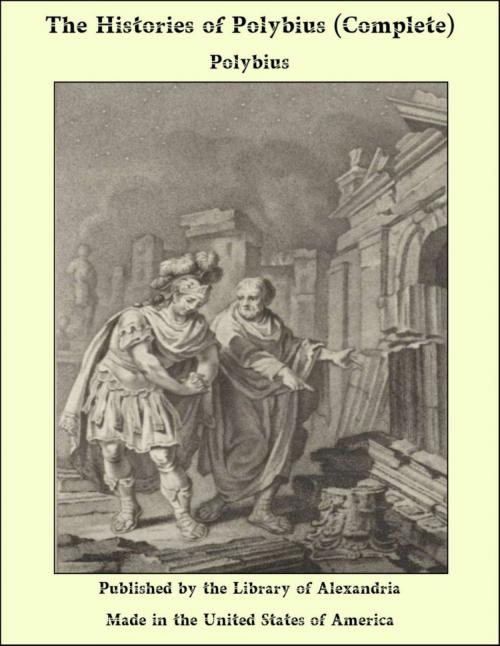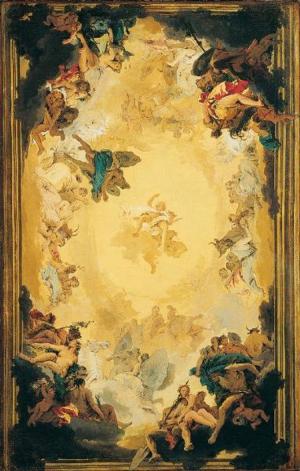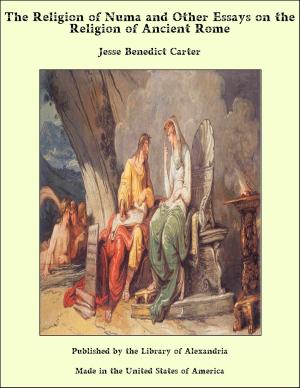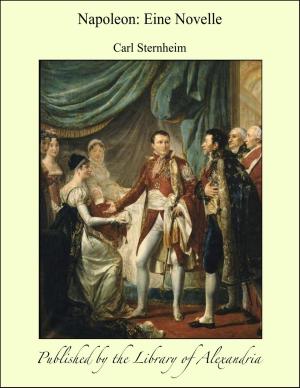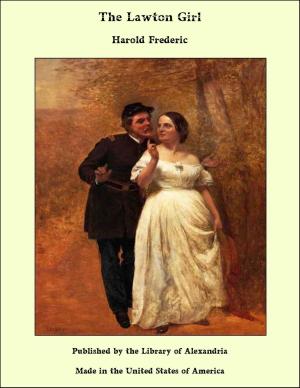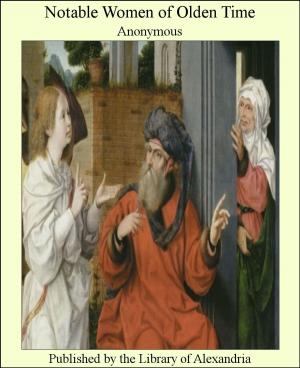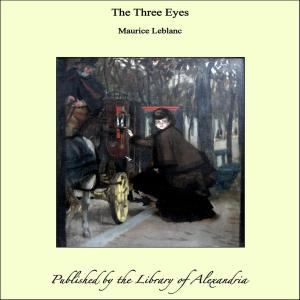The Histories of Polybius (Complete)
Nonfiction, Religion & Spirituality, New Age, History, Fiction & Literature| Author: | Polybius | ISBN: | 9781465593221 |
| Publisher: | Library of Alexandria | Publication: | March 8, 2015 |
| Imprint: | Language: | English |
| Author: | Polybius |
| ISBN: | 9781465593221 |
| Publisher: | Library of Alexandria |
| Publication: | March 8, 2015 |
| Imprint: | |
| Language: | English |
This is the first English translation of the complete works of Polybius as far as they are now known. In attempting such a task I feel that I ought to state distinctly the limits which I have proposed to myself in carrying it out. I have desired to present to English readers a faithful copy of what Polybius wrote, which should at the same time be a readable English book. I have not been careful to follow the Greek idiom; and have not hesitated to break up and curtail or enlarge his sentences, when I thought that, by doing so, I could present his meaning in more idiomatic English. Polybius is not an author likely to be studied for the sake of his Greek, except by a few technical scholars; and the modern complexion of much of his thought makes such a plan of translation both possible and desirable. How far I have succeeded I must leave my readers to decide. Again, I have not undertaken to write a commentary on Polybius, nor to discuss at length the many questions of interest which arise from his text. Such an undertaking would have required much more space than I was able to give: and happily, while my translation was passing through the press, two books have appeared, which will supply English students with much that I might have felt bound to endeavour to give—the Achaean league by Mr. Capes, and the sumptuous Oxford edition of extracts by Mr. Strachan-Davidson. The translation is made from the text of Hultsch and follows his arrangement of the fragments. If this causes some inconvenience to those who use the older texts, I hope that such inconvenience will be minimised by the full index which I have placed at the end of the second volume. I have not, I repeat, undertaken to write a commentary. I propose rather to give the materials for commentary to those who, for various reasons, do not care to use the Greek of Polybius. I have therefore in the first five complete books left him to speak for himself, with the minimum of notes which seemed necessary for the understanding of his text. The case of the fragments was different. In giving a translation of them I have tried, when possible, to indicate the part of the history to which they belong, and to connect them by brief sketches of intermediate events, with full references to those authors who supply the missing links.
This is the first English translation of the complete works of Polybius as far as they are now known. In attempting such a task I feel that I ought to state distinctly the limits which I have proposed to myself in carrying it out. I have desired to present to English readers a faithful copy of what Polybius wrote, which should at the same time be a readable English book. I have not been careful to follow the Greek idiom; and have not hesitated to break up and curtail or enlarge his sentences, when I thought that, by doing so, I could present his meaning in more idiomatic English. Polybius is not an author likely to be studied for the sake of his Greek, except by a few technical scholars; and the modern complexion of much of his thought makes such a plan of translation both possible and desirable. How far I have succeeded I must leave my readers to decide. Again, I have not undertaken to write a commentary on Polybius, nor to discuss at length the many questions of interest which arise from his text. Such an undertaking would have required much more space than I was able to give: and happily, while my translation was passing through the press, two books have appeared, which will supply English students with much that I might have felt bound to endeavour to give—the Achaean league by Mr. Capes, and the sumptuous Oxford edition of extracts by Mr. Strachan-Davidson. The translation is made from the text of Hultsch and follows his arrangement of the fragments. If this causes some inconvenience to those who use the older texts, I hope that such inconvenience will be minimised by the full index which I have placed at the end of the second volume. I have not, I repeat, undertaken to write a commentary. I propose rather to give the materials for commentary to those who, for various reasons, do not care to use the Greek of Polybius. I have therefore in the first five complete books left him to speak for himself, with the minimum of notes which seemed necessary for the understanding of his text. The case of the fragments was different. In giving a translation of them I have tried, when possible, to indicate the part of the history to which they belong, and to connect them by brief sketches of intermediate events, with full references to those authors who supply the missing links.
